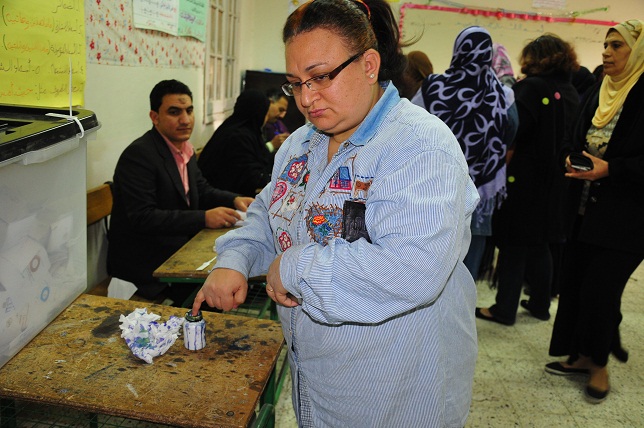BEHEIRA: It’s a long drive from Cairo to Janaklisse, but going deep into the countryside has no bearing on the long arm of corruption.
After Sunday’s arrests of 1,230 farmers in the suburbs of Beheira on charges of tax evasion, the presence of journalists in the village of Janaklisse made farmers twitchy, fearing they might well have been state security.
One farmer, who asked to remain anonymous for fear of reprisal, spoke of his experience of tax round-up day.
“I own two feddans and manage one feddan owned by my neighbor, as he is in Saudi Arabia. His neighbor, Mazen Bayoumi, was not in the country when the police knocked at his door. Instead of waiting until he returned, they arrested his neighbor.
“They’ll do anything to get the money. Our land taxes fluctuate between LE 18 and LE 28, depending on the type of land and its fertility.
However, Bayoumi’s neighbor explained that he had already paid off his debts. “I now have three court cases against me, claiming that I have not paid taxes for the years of 2004-2006. These are court cases I was never even told about until my arrest. However, I have receipts proving that I have paid.
“From what I could see at the police station – and I was there from 3 pm until midnight – it seemed most farmers are in the same situation. Those that owed money had to pay bail of LE 20.
So why exactly have farmers been taken to court on what are effectively redundant charges?
“The problem lies with the tax collector, continues Bayoumi’s neighbor. “If we do not pay immediately, we are permitted to wait until harvest season, when we will have the money to pay any outstanding debts. But when we do pay, our outstanding taxes are not cancelled.
Sitting in the farmer’s small living room-cum-bedroom with his friend and father, there was unanimous agreement that the fault lay with the tax-collector.
“He’s often under pressure from superiors to make cases against farmers.
He might have a quota to fulfill, or bribes to pay further up the bureaucratic ladder. Many farmers pay bribes to get the tax collector off their back, which is of course what he wants.
On arrival at the station, Bayoumi’s neighbor informed police that, having previously paid taxes, he would be making a defense. Despite having a copy of the receipt in his hand, he was told he must attend a court hearing to present his defense.
In the meantime, his land, equipment and livestock have been requisitioned, which means that although the farmer is still responsible for running the farm, the land is in an effective state of confiscation until the farmer pays up.
Many tax collectors, as in our farmer’s case, neither inform farmers that their land has been requisitioned, nor do they inform their superiors when this requisition ought to be lifted.
Eventually, should a farmer fail to pay or fail to prove that taxes have been paid, their land and belongings will be sold.
Moving on from Bayoumi’s land, myself and my companion ask to speak to other farmers and their experiences of the land tax. However, many are scared to talk.
“It will be hard to find anybody that will speak to you, explains Bayoumi’s neighbor. “They are scared of security; they suspect anybody who comes to talk about these issues of being government men.
Driving through Janaklaisse, the traditional center of grape farming, we stop to interview more farmers. But we are met with closed, blank faces that turn away at the mention of “arrest.
“These places are completely isolated, and are further isolated by government policy. It seems there is no government policy when it comes to preserving Egyptian agriculture, except a policy of utter stupidity, said my companion, Bashir Sakr, journalist and member of the Solidarity with Egyptian farmers committee, who has been working on agricultural issues for 30 years.
“Farmers do not know their rights, and corruption continues because they fear the hand of the law. They just want to avoid trouble, but unfortunately that plays straight into the hands of corruption, he said.

